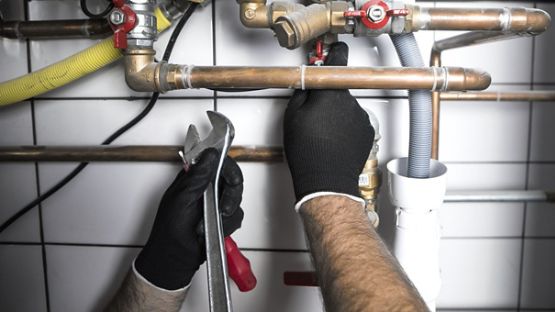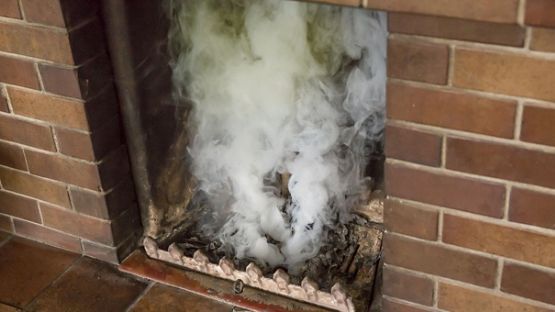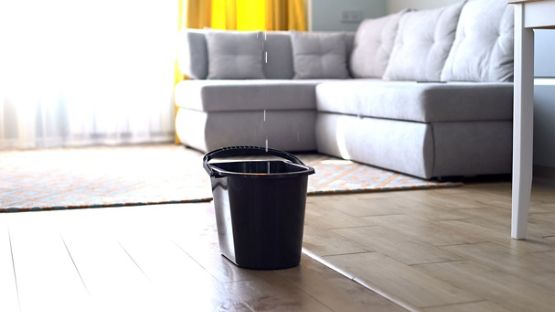Your home is your most valuable asset. So protecting it with insurance is not just a good idea, it's often a necessity. However, there are many misconceptions surrounding home insurance that can cause stress and confusion. Let's clear up that confusion and explore why having home insurance is important.
Key takeaways:
- Home insurance acts as a safety net, protecting your home and belongings from financial losses due to damage or destruction, and providing peace of mind.
- While home insurance isn't legally required in Canada, mortgage lenders usually mandate it to protect their financial investment.
- Standard home insurance policies often exclude damage from upkeep issues like wear and tear, pests, and certain natural disasters (e.g., floods, earthquakes). Additional coverage may be available for some of these exclusions.
What is home insurance?
Think of home insurance as a safety net for your home and everything inside. It's like a sturdy umbrella on a rainy day, shielding you and your home from financial losses caused by damage or destruction.
This coverage can provide peace of mind and also ensure that you can weather unexpected storms without bearing the full financial burden. Home insurance stands guard, offering protection and peace of mind when the unexpected happens.
Is home insurance mandatory in Canada?
Unlike car insurance, home insurance is not mandatory in Canada. However, most banks and mortgage lenders require you to have home insurance and show proof that you have it before lending you money. This is so they can ensure that their investment is protected.
If you own your home outright, there’s no legal requirement in Canada to have home insurance. However, while skipping insurance may save you some money in the short term, it can cost you big in the event of disaster. Let’s look at why getting insurance is still important.
Why do you need proof of house insurance to get a mortgage?
Your mortgage lender will usually require proof of house insurance to ensure that their financial interest in the property is protected. Home insurance mitigates the risk of loss due to damage or destruction, ensuring that the property can be repaired or rebuilt if necessary. This protects the lender's investment and reduces the likelihood of loan default if the homeowner faces a significant loss. Providing proof of insurance is a standard part of the mortgage approval process.
Even without a legal mandate, having home insurance is highly advisable to protect your home and belongings from unexpected events.
Top three reasons to get home insurance
Your home is often your biggest investment, your most valuable asset and a literal roof over your head. Having gone to great lengths to find, purchase and create a home, it just makes sense to protect it.
1. Protect your home
Buying a home is a big purchase. Once you've furnished and decorated your place so it's move-in ready, it can be tempting to skip out on home insurance to save a few dollars every month. However, buying a home policy means you're taking a proactive step towards protecting your property against most losses due to wind, fire, theft and more. With home insurance, you can rest easy knowing you have the means to help cover repair and rebuilding costs.
2. Safeguard your belongings
Home insurance covers more than just your physical home. It also covers your personal belongings like furniture, clothes, laptop and bikes in case of theft, damage or loss. Depending on your policy, your home insurance may even cover items you temporarily take outside of your home such as when you're on vacation.
3. Cover personal liability
If a person who doesn't live in your home injures themselves on your property, you may hold some responsibility. If this is found to be the case, you might end up having to pay for their bills like medical fees. If you're sued for damages, you may also have to bear the costs of litigation. Home insurance helps cover personal liability, so if situations like this occur, you're protected and can rely on your policy to help pay for related expenses.
What does home insurance typically cover?
If something happens to your home, a standard policy typically covers the structure, your personal belongings and even additional living expenses if you need to stay somewhere else while your home is being repaired.
It doesn't stop there; home insurance also looks out for you in other ways. If someone gets hurt on your property or if you accidentally damage someone else's property, your liability protection kicks in, covering legal and medical costs. Even incidents involving pets are often included. It's like having a safety net for life's little (and big) surprises, keeping you covered in more ways than one.
Personal property coverage
This includes coverage for your belongings, whether they are inside your home or temporarily outside (e.g., in your car). It typically covers personal belongings, such as electronics, furniture and clothing.
Considering how much “stuff” the average person accumulates over their lifetime, having some coverage to protect these items is essential (just imagine the expense of having to replace all your belongings at once!)
Pro tip: A home inventory is a handy tool to take stock of all your belongings.
Liability coverage
Liability insurance protects you financially if someone sues you for bodily injury or property damage that occurs on your property. It covers legal fees, medical expenses and damages up to the limits specified in your policy.
Pro tip: There are different kinds of home insurance policies. If you aren't sure which homeowners insurance coverage to choose, talk to your insurance representative to help you find the home insurance coverage that’s right for you.
What’s not covered by standard home insurance policies?
While home insurance provides extensive coverage, it's important to know its limits. Here’s a breakdown of what typically isn't covered:
Certain unexpected events
Your home insurance policy may cover certain types of unexpected events, like fire, windstorm or theft. However, some unexpected events, such as earthquakes, are usually not covered under standard policies. You would need to purchase additional coverage for these.
Earthquakes can cause extensive damage, so if you live in an area prone to these natural disasters, it’s wise to consider additional coverages.
Some kinds of predictable events
Insurance companies generally don't cover predictable events and issues related to the maintenance of your home. For instance, if you leave your home unoccupied for certain periods during cold weather and your pipes freeze, the damage might not be covered. Regular home maintenance and taking preventive measures are crucial to avoid such scenarios.
Policy-specific exclusions
Home insurance policies can vary, and the exact exclusions may differ between policies and insurers. Many policies follow a comprehensive form or all-risk coverage, meaning all risks are covered except for those specifically excluded in the policy.
Common exclusions include:
- Wear and tear: Damage from normal aging and regular use of your home isn't covered. This includes issues like worn-out roofing, deteriorated plumbing or old electrical systems.
- Pest damage: Damage caused by rodents, insects or other pests is typically excluded. This means if termites or rats cause damage to your home, the repairs will be out of pocket.
- Acts of terrorism: Most standard home insurance policies exclude damage resulting from acts of terrorism.
- Certain natural disasters: As mentioned, events like floods and earthquakes may require additional coverages.
If you find something listed as an exclusion that you need coverage for, you may be able to purchase additional coverage through an add-on. Always review your policy carefully and discuss any concerns with your insurance provider to ensure you have the necessary protection.
Take time to understand dollar limits and coverage restrictions
Policies often have specific dollar limits and restrictions on certain categories of items, such as jewellery, art or wine collections. If you’ve got a Picasso stashed in the attic, check these limits to ensure those precious items are covered.
For additional protection, look into personal valuables coverage or similar options that provide higher limits for these items. Understanding these limits helps you make informed decisions about your home insurance policy and whether you need additional coverage to protect against specific risks. Always consult with your insurance provider for clarity and advice tailored to your individual needs.
Finding the right home insurance for you
When choosing a home insurance policy, it's important to think about how much coverage you'll need. One of the ways to do this is to assess the value of your home. If you're wondering how insurance companies determine the replacement value of a home or how to find out the risk level of your property, speak with your insurance representative. They'll have the tools and information to make these estimates.
For more information on the right homeowners insurance policy for your property and to learn more about home insurance costs, visit our website:













